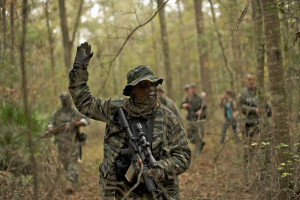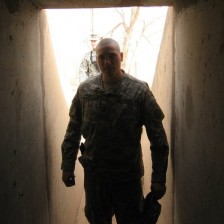
As you read through this think about your family or close group of friends. In an emergency who is calling the shots? All of you? That’s great until you have a disagreement in the group, then what? Are your survival odds best in fractured individuals or groups of trusted individuals? Also, when I talk about leaders don’t focus on a big boss man, but think about an organized structure where everyone can give input but thoughtful decisions are ultimately made.
I was reading Lord of Flies and pondering on the chaos (if you’ve read my other articles then you know I love reading). This is partly due to the main characters all being children; but do humans act that differently in emergency situations? Many of the children are looking for a leader, some are fighting the notion of leadership, and others are rooting for that power. With the conch, they attempt to set up a system where all have equal input into the situation, but this quickly disintegrates to chaos, and lives are soon lost.
Whether it be your family with a family head, or just a group of likeminded individuals, it might be worth determining who the “leader” is, and in his absence how does that leadership progress down the ranks so that somebody is always making decisions when the group might not be in consensus. There is strength in numbers, and the last thing you need is to watch your group fall apart over a fork in the road. Not everyone will agree with all decisions; but you must maintain cohesion.
The number one description for rank in the dictionary is: a position in the hierarchy of the armed forces. For hierarchy the dictionary states: a system or organization in which people or groups are ranked one above the other according to status or authority.
Many organizations in the US utilize a strong standard rank structure, most notably the different branches of the armed forces. The concept is that in any situation there is always an individual designated as the person in charge, and that we might all find ourselves in leadership roles making tough decisions. Even in the advent of equal rank, time and grade will still determine who is in charge. In the military there always has to be a leader.
Other emergency organizations follow the same principle. When a group of police officers respond to a situation rank and position will always determine who is in charge, and the others follow, fulfilling their individual responsibilities. Fire fighters are another good example of the application of rank.
Some religions follow a similar hierarchy. The faith I belong to is broke down into local groups of roughly 2-300 members. These members are broken into groups by age, priesthood level, and other auxiliary groups. These groups are each overseen by a president and a first and second councilor. Likewise, the head or bishop of the local church also has a first and second councilor. This bishop then reports to clusters of churches under an additional president and councilors, who in turn reports to regional authorities and so forth. The intent is not power, there is no paid clergy; but we feel a need to make sure every member is taken care of, as well as all those in our communities regardless of faith. Even individuals are administered to from other members via home teaching and visiting teaching.
The strong organization of this faith has proved itself in times of crisis as efficient and effective. When the Teton Dam burst above Sugar City Idaho entire communities were washed away and others left under many feet of flood water. In the aftermath government officials were dispatched to take charge of the relief effort, but found a local community, predominately of this particular faith, already organized and seeing to the aid of all those affected. These officials finally had to step back and learn because they had nothing to offer that wasn’t already being accomplished as good as or better than they would have hoped.
In the early days of the Wild West fur companies, wagon trains, and hand cart companies were all established with captains that would lead and direct, and occasionally make the hard decisions. Many early pirate ship crews ran a pseudo democracy where captains were elected from the body, and if they failed to perform as expected they could be impeached and a new captain elected.
So these are a few examples of an effective rank, or hierarchy system, at the macro level; but how can it apply to us at the micro level. If we are not organized in some fashion we likely end up in the same situation as the children found themselves in Lord of the Flies; strong armed thugs taking charge and innocent people left dead in their wake. Okay, maybe not, but you get the idea.
You may have a great prepper group, but they are all opinionated and draw from a different pool of experiences, and how to you deal with disagreement, especially when it could be a life threatening decision? Do you have a designated order for making decisions and somebody that has the final word? Who steps in if that person is absent or injured?
Food for thought.
Jon
The picture is from the North Florida Survival Group

Leave a Reply